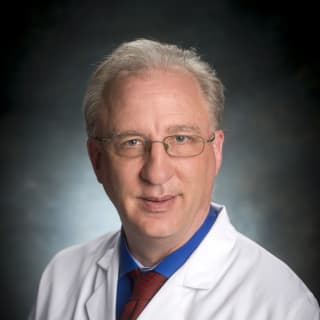
Ali Ahmed MD , MPH
Associate Chief of Staff for Health and Aging, VA Medical Center; Professor of Medicine, George Washington University; Adjunct Professor of Medicine, Georgetown University; Washington, D.C.
Join to View Full Profile
619 19th St SBirmingham, AL 35233
Phone+1 205-934-6600
Dr. Ahmed is on Doximity
As a Doximity member you'll join over two million verified healthcare professionals in a private, secure network.
- Gain access to free telehealth tools, such as our “call shielding” and one-way patient texting.
- Connect with colleagues in the same hospital or clinic.
- Read the latest clinical news, personalized to your specialty.
Summary
- I am fellowship-trained geriatrician who specializes in heart failure in older adults.
Education & Training
 University of Alabama Medical CenterFellowship, Geriatric Medicine (Internal Medicine), 1997 - 1999
University of Alabama Medical CenterFellowship, Geriatric Medicine (Internal Medicine), 1997 - 1999 University of Alabama at Birmingham School of Public HealthMaster of Public Health, Epidemiology, 1997 - 1998
University of Alabama at Birmingham School of Public HealthMaster of Public Health, Epidemiology, 1997 - 1998 St John's Episcopal Hospital-South ShoreResidency, Internal Medicine, 1994 - 1997
St John's Episcopal Hospital-South ShoreResidency, Internal Medicine, 1994 - 1997 Sher e Bangla Medical CollegeClass of 1982
Sher e Bangla Medical CollegeClass of 1982
Certifications & Licensure
 AL State Medical License 1996 - 2025
AL State Medical License 1996 - 2025 FL State Medical License 1997 - 2002
FL State Medical License 1997 - 2002 American Board of Internal Medicine Geriatric Medicine
American Board of Internal Medicine Geriatric Medicine
Publications & Presentations
PubMed
- Lower Risk of Death and Kidney Failure Associated with Higher Target (vs Below-Target) Doses of RAS Inhibitors in Octogenarians with HFrEF.Mo-Kyung Sin, Richard M Allman, Charles Faselis, Wilbert S Aronow, Cynthia J Brown
The American Journal of Medicine. 2025-04-01 - Digoxin Discontinuation in Patients With HFrEF on Beta-Blockers: Implication for Future 'Knock-Out Trials' in Heart Failure.Phillip H Lam, Kevin Liu, Amiya A Ahmed, Javed Butler, Paul A Heidenreich
The American Journal of Medicine. 2025-03-01 - 1 citationsOutcomes of KDIGO-Defined CKD in U.S. Veterans With HFpEF, HFmrEF, and HFrEF.Samir Patel, Venkatesh K Raman, Charles Faselis, Gregg C Fonarow, Phillip H Lam
JACC. Heart Failure. 2025-03-01
Press Mentions
![Non-Heavy Smokers Still at High Risk of Lung Cancer — Would routine low-dose CT screening help ex-smokers, light smokers? by James Lopilato, Staff Writer, MedPage Today July 28, 2022 Share on Facebook. Opens in a new tab or window Share on Twitter. Opens in a new tab or window Share on LinkedIn. Opens in a new tab or window email article A photo of a male radiologist beginning a CT scan of a woman’s chest. Older smokers not subject to routine low-dose computed tomography (CT) screening were found to have 10 times the risk of lung cancer compared to never smokers, a cohort study found. The U.S. Preventive Services Task Force (USPSTF) does not recommend annual lung cancer screening for former smokers age 50-80 years with 20 or more pack-years of smoking who quit 15 or more years ago or current smokers with less than 20 pack-years of smoking. In the Cardiovascular Health Study (CHS), however, current non-heavy smokers with less than 20 pack-years of smoking had a significantly higher incidence of lung cancer over a median 13.3 years of follow-up (5.0% vs 0.5% for never smokers, adjusted HR 10.06, 95% CI 3.41-29.70), reported Ali Ahmed, MD, from the VA Medical Center in Washington, D.C., and colleagues. As did former smokers with less than 15 years of smoking cessation (5.0%, adjusted HR 10.22, 95% CI 4.86-21.50). "This [study] suggests that the lung cancer risk among heavy smokers may never drop to the level of never smokers, even after decades of smoking cessation, and highlights the importance of abstinence, early cessation, and possible screening," the authors wrote in JAMA Oncologyopens in a new tab or window. "Taken together, these findings suggest that current heavy smokers receive immediate risk reduction from smoking cessation but high-level risk persists despite very prolonged cessation. Yet this latter group of smokers is not currently considered for lung cancer screening," they noted. The authors suggested further studies be conducted to determine if low-dose CT might reduce lung cancer mortality in these lower-risk groups of smokers. "For current smokers it is simple: encourage to quit and quit now. It is a bit more complicated for former heavy smokers who have quit 15 or more years ago for whom screening is not currently recommended. Given their 1,000% higher risk, it is tempting to recommend screening, but it will expose the 95% who do not develop lung cancer to harm of [testing]," Ahmed told MedPage Today. In 2013, the USPSTF began recommendingopens in a new tab or window low-dose CT every year for high-risk current and former smokers age 55 to 80 years, resulting in more non-small cell lung cancer cases being caught while still at stage Iopens in a new tab or window in subsequent years. Unsurprisingly, Ahmed's group observed the greatest risk of lung cancer in current heavy smokers with at least 20 pack-years of smoking history (HR 39.29, 95% CI 20.24-76.25). The cohort study was conducted using CHS data sets from the National Heart, Lung, and Blood Institute. There were 5,888 community-dwelling individuals, 65 years of age or older, enrolled from June 1989 to June 1993. Participants averaged 72.8 years of age, and 57.3% were women. About five in six were white. Baseline data on pack-year smoking history and duration of smoking cessation were required for analysis. Pack-years were defined by multiplying the number of packs (20 cigarettes) smoked per day by the number of years smoked at that level, summed over all levels of smoking. Study authors acknowledged the lack of data on smoking habits during the follow-up period. Residual and unmeasured bias may have confounded results as well. Furthermore, cigarette use and lung cancers may have been underreported. Finally, data from older smokers may not be generalizable to younger smokers, Ahmed and colleagues warned. author['full_name'] James Lopilato is a staff writer for Medpage Today. He covers a variety of topics being explored in current medical science research. Disclosures Ahmed reported being primary investigator and a co-investigator in multiple NIH and Veterans Administration Office of Research and Development funded projects, having paid full-time employment at the Washington D.C. Veterans Affairs Medical Center, and unpaid faculty appointments at George Washington University and Georgetown University. Primary Source JAMA Oncology Source Reference: opens in a new tab or windowFaselis C, et al "Assessment of lung cancer risk among smokers for whom annual screening is not recommended" JAMA Oncol 2022; DOI: 10.1001/jamaoncol.2022.2952. 0 Comments](https://doximity-res.cloudinary.com/image/upload/v1/Profiles/api/placeholders/news/news-9.png) Non-Heavy Smokers Still at High Risk of Lung Cancer — Would routine low-dose CT screening help ex-smokers, light smokers? by James Lopilato, Staff Writer, MedPage Today July 28, 2022 Share on Facebook. Opens in a new tab or window Share on Twitter. Opens in a new tab or window Share on LinkedIn. Opens in a new tab or window email article A photo of a male radiologist beginning a CT scan of a woman’s chest. Older smokers not subject to routine low-dose computed tomography (CT) screening were found to have 10 times the risk of lung cancer compared to never smokers, a cohort study found. The U.S. Preventive Services Task Force (USPSTF) does not recommend annual lung cancer screening for former smokers age 50-80 years with 20 or more pack-years of smoking who quit 15 or more years ago or current smokers with less than 20 pack-years of smoking. In the Cardiovascular Health Study (CHS), however, current non-heavy smokers with less than 20 pack-years of smoking had a significantly higher incidence of lung cancer over a median 13.3 years of follow-up (5.0% vs 0.5% for never smokers, adjusted HR 10.06, 95% CI 3.41-29.70), reported Ali Ahmed, MD, from the VA Medical Center in Washington, D.C., and colleagues. As did former smokers with less than 15 years of smoking cessation (5.0%, adjusted HR 10.22, 95% CI 4.86-21.50). "This [study] suggests that the lung cancer risk among heavy smokers may never drop to the level of never smokers, even after decades of smoking cessation, and highlights the importance of abstinence, early cessation, and possible screening," the authors wrote in JAMA Oncologyopens in a new tab or window. "Taken together, these findings suggest that current heavy smokers receive immediate risk reduction from smoking cessation but high-level risk persists despite very prolonged cessation. Yet this latter group of smokers is not currently considered for lung cancer screening," they noted. The authors suggested further studies be conducted to determine if low-dose CT might reduce lung cancer mortality in these lower-risk groups of smokers. "For current smokers it is simple: encourage to quit and quit now. It is a bit more complicated for former heavy smokers who have quit 15 or more years ago for whom screening is not currently recommended. Given their 1,000% higher risk, it is tempting to recommend screening, but it will expose the 95% who do not develop lung cancer to harm of [testing]," Ahmed told MedPage Today. In 2013, the USPSTF began recommendingopens in a new tab or window low-dose CT every year for high-risk current and former smokers age 55 to 80 years, resulting in more non-small cell lung cancer cases being caught while still at stage Iopens in a new tab or window in subsequent years. Unsurprisingly, Ahmed's group observed the greatest risk of lung cancer in current heavy smokers with at least 20 pack-years of smoking history (HR 39.29, 95% CI 20.24-76.25). The cohort study was conducted using CHS data sets from the National Heart, Lung, and Blood Institute. There were 5,888 community-dwelling individuals, 65 years of age or older, enrolled from June 1989 to June 1993. Participants averaged 72.8 years of age, and 57.3% were women. About five in six were white. Baseline data on pack-year smoking history and duration of smoking cessation were required for analysis. Pack-years were defined by multiplying the number of packs (20 cigarettes) smoked per day by the number of years smoked at that level, summed over all levels of smoking. Study authors acknowledged the lack of data on smoking habits during the follow-up period. Residual and unmeasured bias may have confounded results as well. Furthermore, cigarette use and lung cancers may have been underreported. Finally, data from older smokers may not be generalizable to younger smokers, Ahmed and colleagues warned. author['full_name'] James Lopilato is a staff writer for Medpage Today. He covers a variety of topics being explored in current medical science research. Disclosures Ahmed reported being primary investigator and a co-investigator in multiple NIH and Veterans Administration Office of Research and Development funded projects, having paid full-time employment at the Washington D.C. Veterans Affairs Medical Center, and unpaid faculty appointments at George Washington University and Georgetown University. Primary Source JAMA Oncology Source Reference: opens in a new tab or windowFaselis C, et al "Assessment of lung cancer risk among smokers for whom annual screening is not recommended" JAMA Oncol 2022; DOI: 10.1001/jamaoncol.2022.2952. 0 Comments July 28th, 2022
Non-Heavy Smokers Still at High Risk of Lung Cancer — Would routine low-dose CT screening help ex-smokers, light smokers? by James Lopilato, Staff Writer, MedPage Today July 28, 2022 Share on Facebook. Opens in a new tab or window Share on Twitter. Opens in a new tab or window Share on LinkedIn. Opens in a new tab or window email article A photo of a male radiologist beginning a CT scan of a woman’s chest. Older smokers not subject to routine low-dose computed tomography (CT) screening were found to have 10 times the risk of lung cancer compared to never smokers, a cohort study found. The U.S. Preventive Services Task Force (USPSTF) does not recommend annual lung cancer screening for former smokers age 50-80 years with 20 or more pack-years of smoking who quit 15 or more years ago or current smokers with less than 20 pack-years of smoking. In the Cardiovascular Health Study (CHS), however, current non-heavy smokers with less than 20 pack-years of smoking had a significantly higher incidence of lung cancer over a median 13.3 years of follow-up (5.0% vs 0.5% for never smokers, adjusted HR 10.06, 95% CI 3.41-29.70), reported Ali Ahmed, MD, from the VA Medical Center in Washington, D.C., and colleagues. As did former smokers with less than 15 years of smoking cessation (5.0%, adjusted HR 10.22, 95% CI 4.86-21.50). "This [study] suggests that the lung cancer risk among heavy smokers may never drop to the level of never smokers, even after decades of smoking cessation, and highlights the importance of abstinence, early cessation, and possible screening," the authors wrote in JAMA Oncologyopens in a new tab or window. "Taken together, these findings suggest that current heavy smokers receive immediate risk reduction from smoking cessation but high-level risk persists despite very prolonged cessation. Yet this latter group of smokers is not currently considered for lung cancer screening," they noted. The authors suggested further studies be conducted to determine if low-dose CT might reduce lung cancer mortality in these lower-risk groups of smokers. "For current smokers it is simple: encourage to quit and quit now. It is a bit more complicated for former heavy smokers who have quit 15 or more years ago for whom screening is not currently recommended. Given their 1,000% higher risk, it is tempting to recommend screening, but it will expose the 95% who do not develop lung cancer to harm of [testing]," Ahmed told MedPage Today. In 2013, the USPSTF began recommendingopens in a new tab or window low-dose CT every year for high-risk current and former smokers age 55 to 80 years, resulting in more non-small cell lung cancer cases being caught while still at stage Iopens in a new tab or window in subsequent years. Unsurprisingly, Ahmed's group observed the greatest risk of lung cancer in current heavy smokers with at least 20 pack-years of smoking history (HR 39.29, 95% CI 20.24-76.25). The cohort study was conducted using CHS data sets from the National Heart, Lung, and Blood Institute. There were 5,888 community-dwelling individuals, 65 years of age or older, enrolled from June 1989 to June 1993. Participants averaged 72.8 years of age, and 57.3% were women. About five in six were white. Baseline data on pack-year smoking history and duration of smoking cessation were required for analysis. Pack-years were defined by multiplying the number of packs (20 cigarettes) smoked per day by the number of years smoked at that level, summed over all levels of smoking. Study authors acknowledged the lack of data on smoking habits during the follow-up period. Residual and unmeasured bias may have confounded results as well. Furthermore, cigarette use and lung cancers may have been underreported. Finally, data from older smokers may not be generalizable to younger smokers, Ahmed and colleagues warned. author['full_name'] James Lopilato is a staff writer for Medpage Today. He covers a variety of topics being explored in current medical science research. Disclosures Ahmed reported being primary investigator and a co-investigator in multiple NIH and Veterans Administration Office of Research and Development funded projects, having paid full-time employment at the Washington D.C. Veterans Affairs Medical Center, and unpaid faculty appointments at George Washington University and Georgetown University. Primary Source JAMA Oncology Source Reference: opens in a new tab or windowFaselis C, et al "Assessment of lung cancer risk among smokers for whom annual screening is not recommended" JAMA Oncol 2022; DOI: 10.1001/jamaoncol.2022.2952. 0 Comments July 28th, 2022 Lung cancer risk high among smokers for whom screening is not recommendedJuly 28th, 2022
Lung cancer risk high among smokers for whom screening is not recommendedJuly 28th, 2022 VA Researchers Find High Risk Of Lung Cancer In Older Smokers Previously Considered Low RiskJuly 22nd, 2022
VA Researchers Find High Risk Of Lung Cancer In Older Smokers Previously Considered Low RiskJuly 22nd, 2022- Join now to see all
Grant Support
- Neurohormonal Blockade and Outcomes in Diastolic Heart FailureNHLBI2009–2012
- Heart failure, Chronic Kidney Disease, and Renin-Angiotensin System InhibitionNHLBI2006–2012
- Heart Failure and Beta-Blocker Use in Older AdultsNIA2003–2007
External Links
- PubMedhttp://www.ncbi.nlm.nih.gov/sites/myncbi/ali.ahmed.1/bibliography/41186268/public/?sort=date&direction=descending
- Researcher-IDhttp://www.researcherid.com/rid/A-2934-2008#!
- ResearchGatehttp://www.researchgate.net/profile/Ali_Ahmed2/#!
Viewing the full profile is available to verified healthcare professionals only.
Find your profile and take control of your online presence:









